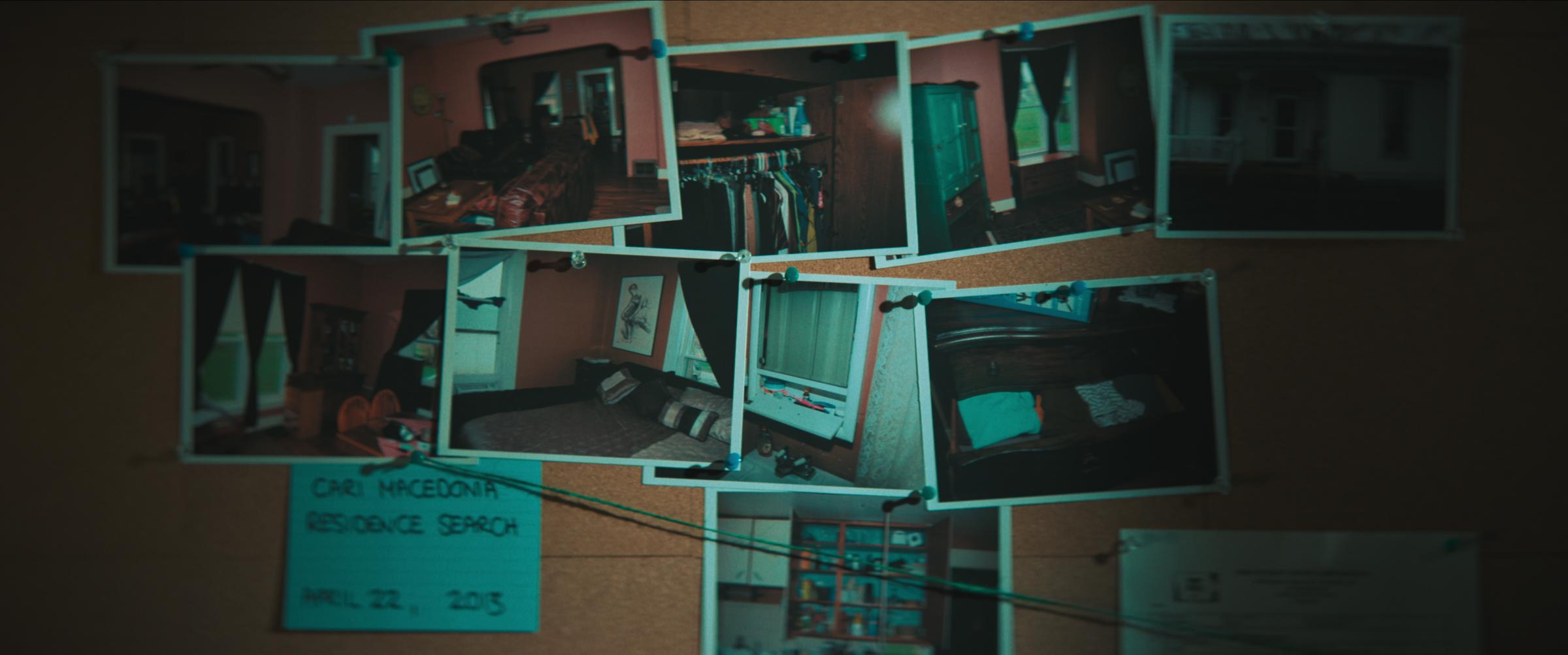Warning: This post contains spoilers for Lover, Stalker, Killer.
At the center of Netflix's Lover, Stalker, Killer is a love triangle gone horribly wrong—but not in the way the true-crime documentary first leads you to suspect.
Out Feb. 9, Lover, Stalker, Killer recounts the true story of how auto mechanic Dave Kroupa became embroiled in an online dating nightmare that resulted in years of stalking and harassment, arson, and a murder. The documentary, directed by Sam Hobkinson (Fear City: New York vs. The Mafia), leans heavily on interviews with Kroupa, law enforcement officials, and other main players in the case to reconstruct the events surrounding the perpetrator's crimes. Kroupa even plays himself in many of the film's dramatic reenactment scenes.
The doc also features a shocking twist, which (if you're not already familiar with the facts of the story) will likely throw you for a bit of a loop. "We enter this story from the perspective of Dave, who is caught in a complete web of falsehood," Hobkinson told Netflix's Tudum. "I wanted the storytelling to somehow reflect that confusion, and ultimately, his total disbelief when he realizes what’s happened."
What is Lover, Stalker, Killer about?
After moving to Omaha, Neb., in 2012, a newly single Kroupa joined the online dating site Plenty of Fish. Shortly afterward, he received a message from a local woman named Shanna "Liz" Golyar and they quickly hit it off. Kroupa says their romance was no-strings-attached, as he had recently gotten out of a long-term relationship with Amy Flora, the mother of his two children. So when Kroupa later met Cari Farver—who lived an hour away in Macedonia, Iowa—at his auto shop and then discovered she had a profile on the site, he began casually dating her as well.
An "awkward" encounter occurred the first night Kroupa had Farver over when Golyar showed up saying she needed to get something out of his apartment. Kroupa explained the situation and Farver decided to leave so that Golyar could get inside. But, according to Kroupa, the two women only "made eye contact for all of three seconds" as Farver passed Golyar on her way out—and that was seemingly that.

Around two weeks after they started seeing each other, Kroupa left Farver at his place on the morning of Nov. 13, 2012, to head to work for the day. A few hours later, he received a strange text from her saying they should move in together. He reminded her that they had discussed keeping things low-key and received a barrage of messages in return saying she hated him and that he had ruined her life.
By the time he went home for lunch, it appeared that Farver had taken all of her belongings and left. A few days later, Kroupa started receiving increasingly menacing texts like, "I’m going to destroy the things you care about" and "Your life will be ruined."
From there, the situation rapidly spiraled out of control. For the next four years, Kroupa and those close to him were subjected to various forms of harassment, including a near-constant stream of threatening messages from over 40 different phone numbers and countless email aliases. Farver appeared to be specifically targeting Golyar, whose car was keyed and whose house was burned down—killing all of her pets—among other incidents.
Kroupa had enlisted the help of the Omaha Police Department shortly after the harassment began. But a major problem continually plagued the case: no one had seen Farver since that November morning Kroupa had left her at his apartment. In January 2013, Kroupa spotted Farver's car in a parking lot near his home, but when police searched it, they found only a single fingerprint that wasn't a match for Farver or anyone in the FBI's national database.
In the days after Farver disappeared from Kroupa's apartment, her mother, Nancy Raney, also started receiving strange messages, including ones in which Farver said she was moving to Kansas for a new job and would get in touch about picking up her 15-year-old son, Max. Raney told ABC News that this "totally threw" her and she filed a missing persons report with the Pottawattamie County Sheriff's Office three days later. But when Raney told police that Farver had been diagnosed with and was taking medication for bipolar disorder, she says they stopped taking the report seriously.
"[The Department] takes all missing persons reports seriously no matter the circumstances surrounding them," the sheriff's office said in a statement. "The available evidence during the initial investigation was inconclusive, but we did not give up."
Read more: The Surreal True Story Behind the Max True Crime Doc They Called Him Mostly Harmless
What happened to Cari Farver?
In its shocking twist, Lover, Stalker, Killer reveals that Farver was murdered on the same day Kroupa started receiving strange messages from her phone number—and the killer was none other than Golyar, who went on to orchestrate the harassment campaign against Kroupa and his loved ones. She had even gone so far as to burn her own house down.
The big break in the case came after Pottawattamie County Sheriff's Office Sergeant Jim Doty and Deputy Ryan Avis took over the investigation in spring 2015 and decided to comb back through downloads of the contents of Kroupa and Golyar's phones that had been collected in 2013. With the help of digital forensics-expert Special Deputy Tony Kava, they discovered a photo of Farver's car on Golyar's phone that had been taken a month before police recovered the vehicle.

"Somehow Liz knew where Cari's vehicle was before law enforcement even did," Doty told ABC News. "Another thing we found on the phone download was there were six calls that were made to Cari's residence. It was using the *67 prefix to disguise the number, so Liz was calling Cari six times. This didn't make sense to us because she said she'd only met Cari one time passing through a hallway."
The pieces of the case started to come together, but at the same time, Golyar began trying to frame Flora for everything that had happened. She even shot herself in the leg and—unaware that Flora had a solid alibi for the night—claimed Flora had attacked her. Golyar's story was unravelling, but the final nail in the coffin came when police gained access to a tablet of Golyar's that contained a memory card with a photo of Farver's dead body. Golyar was arrested in December 2016, with police alleging that Golyar had stabbed Farver to death in her car (where bloodstains had been discovered during a more thorough follow-up investigation) before disposing of her body.
In 2017, Golyar was convicted of first-degree murder and second-degree arson. She was sentenced to life in prison without the possibility of parole.
The final minutes of Lover, Stalker, Killer are devoted to those involved in the case reflecting on how important it is to them to restore Farver's reputation. "If I'd have known the choice was this craziness or tell Cari I'm not interested, I would've told Cari I'm not interested," Kroupa says. "But you don't get that choice."
More Must-Reads from TIME
- Cybersecurity Experts Are Sounding the Alarm on DOGE
- Meet the 2025 Women of the Year
- The Harsh Truth About Disability Inclusion
- Why Do More Young Adults Have Cancer?
- Colman Domingo Leads With Radical Love
- How to Get Better at Doing Things Alone
- Michelle Zauner Stares Down the Darkness
Write to Megan McCluskey at megan.mccluskey@time.com